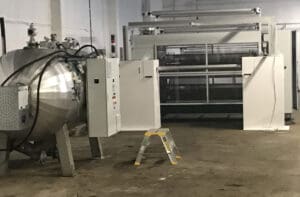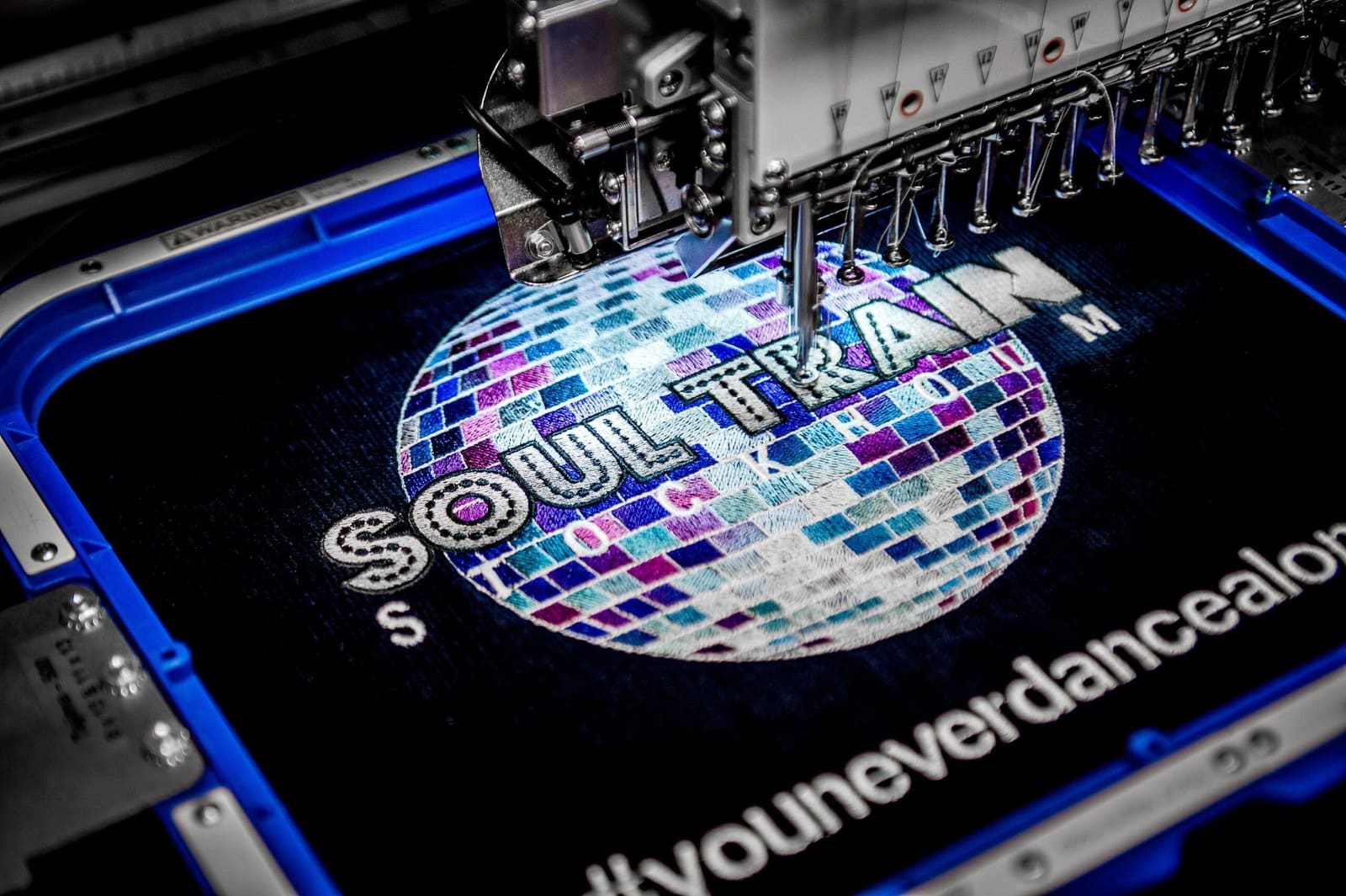“Based on a CMYK ink system, Coloreel’s advanced rapid color formulation software and high-speed drive technology allow a single needle to carry out what previously required many multiples of them to do – and with much more consistent stitch quality”.
New manufacturers of regenerated cellulosic fibers as alternatives to cotton and synthetics, for example, have been gaining a lot of attention recently, as they scale up to meet demands for a circular approach to the manufacturing of textiles and garments.
These companies have, in turn, been embraced by major Scandinavian brands such as the Danish clothing company Bestseller, Finnish fashion house Marimekko, Norwegian outdoor brand Bergans and Sweden’s own H&M Group.
Coloreel expansion
Here is where the latest fully digital technologies of TMAS member companies are making a dramatic difference, such as the instant thread coloration technology, of Coloreel, which has just raised SEK 100 in new financing to support its market expansion and growth.
Initially targeting the embroidery market, Coloreel technology enables the high-quality and instant coloring of a textile thread while it is actually being used in production and can be paired with any existing embroidery machine without modification, while also making it possible to produce gradients in an embroidery for the first time.
Based on a CMYK ink system, Coloreel’s advanced rapid color formulation software and high-speed drive technology allow a single needle to carry out what previously required many multiples of them to do – and with much more consistent stitch quality.
In addition, existing thread dyeing plants can add a single solid color to a thread, but by instantly coloring a white base thread during production, Coloreel enables complete freedom to create unique embroideries without any limitations in the use of colors. Color changes along the thread can either be made rapidly from one solid color to another, or gradually, to make smooth transitions or any coloring effect desired.
This provides big benefits when it comes to sustainability. There is a significant reduction in wasted inks, while water usage is minimized, and production speeds are increased. The technology allows set-up and lead times to be reduced as well as significant flexibility in production schedules, while eliminating the need for large thread inventories.
“Our system is allowing customers to achieve color effects that have never been seen before – and at a new level of efficiency,” says VP of Sales and Marketing at Coloreel, Mats Sjögren. “We are setting the new benchmark for the embroidery industry.”
Despite the Covid-19 pandemic, Coloreel, has recently successfully delivered units to companies in Europe, the United States and Asia, and has also partnered with the world’s largest distributor of embroidery machines, American Hirsch Solutions, which has already installed the technology at a number of customers in the USA.
imogo
Another TMAS member achieving rapid progress is imogo, which is currently installing its first industrial scale Dye-Max spray dyeing line at the plant close to Borås of Swedish commission dyeing company 7H Färgeri – the Nordic region’s most complete dyeing and processing plant.
The new line has a working width of 1.8 meters with an operating speed of up to 50 meters for the reactive dyeing of cellulosic fiber-based fabrics. In addition, it can carry out the application of a wide range of fabric pre-treatments and finishing processes, providing the company with unbeatable flexibility in production.
A proven Mini-Max laboratory unit for pre-determining application volumes and color matching has also been installed at the 7H plant.
With the potential to slash the use of fresh water, wastewater, energy, and chemicals by as much as 90% compared to conventional jet dyeing systems, the DyeMax has gained considerable attention since the concept was outlined and a prototype machine constructed in 2019.
The application unit of the Dye-Max consists of a closed chamber containing a series of spray cassettes with precision nozzles for accurate and consistent coverage, in combination with the patented imogo Pro Speed valve that controls the volume to be applied.

The new imogo DyeMax at 7H in Sweden.
© imogo.
“We are achieving an extremely low liquor ratio of around 0.5-1 liters per kilo of fabric and we fully control the pickup, applying precisely what is required to the specific fabric,” says imogo founding partner Per Stenflo. “Compared to traditional padders there is no contamination of the dyebath or dilution of the dye liquor to worry about.”
Fast changeovers with virtually no waste, together with a high production speed, enable a high productivity and unmatched production flexibility.
“The Dye-Max will be implemented in 7H daily production and producers and brands are welcome to visit when the Covid-19 situation allows. They are also welcome to do test productions at 7H to verify the performance on their fabrics.”

